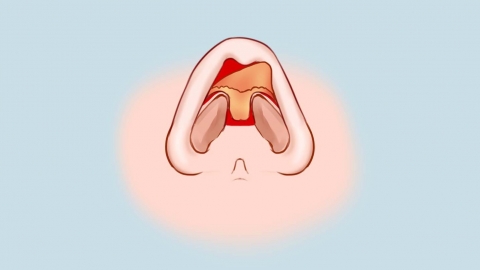How to Reduce the Size of Nostrils
Generally, factors that may affect nasal ala reduction include hereditary factors, aging, nasal trauma, nasal polyps, and chronic sinusitis. It is recommended to seek timely medical advice to identify the underlying cause and, under the guidance of a qualified physician, utilize medication or surgical treatments to promote nasal ala reduction. Detailed analysis is as follows:
1. Hereditary Factors
Due to inherited nasal structural characteristics, if someone in the family has larger nostrils, an individual may inherit this trait, which affects nasal ala reduction. It is recommended to consider cosmetic procedures such as alar base reduction surgery. This type of surgery can adjust the shape of the nasal wings, making the nostrils appear smaller.
2. Aging
With aging, facial soft tissues gradually become lax, making the nostrils appear larger. It is recommended to seek timely medical attention. Aesthetic procedures such as injecting fillers around the nasal wings or undergoing a facelift to tighten facial soft tissues may help make the nostrils appear smaller.

3. Nasal Trauma
Nasal trauma, such as fractures or contusions, may damage the nasal bones and soft tissues, altering the shape of the nostrils and affecting nasal ala reduction. It may be accompanied by symptoms such as pain, bleeding, and a deviated nasal bridge. It is recommended to seek timely medical attention; surgical repair, such as nasal bone reduction, may be necessary to restore the normal nasal shape.
4. Nasal Polyps
Nasal polyps are benign growths caused by the hyperplasia of nasal mucosa. When they grow to a certain size, they may compress or pull the nasal soft tissues, affecting nasal ala reduction. Symptoms may include nasal congestion, runny nose, and reduced sense of smell. Small nasal polyps can be treated with medications such as Cefdinir Dispersible Tablets, Azithromycin Capsules, and Erythromycin Ointment to alleviate symptoms, while larger polyps may require surgical removal.
5. Chronic Sinusitis
Chronic sinusitis refers to long-term inflammation in the sinus areas, which may cause swelling and thickening of nasal soft tissues, thereby affecting nasal ala reduction. Symptoms may include nasal congestion, headache, and facial tenderness. It is recommended to follow medical advice to use antibiotics such as Penicillin V Potassium Tablets, Amoxicillin Capsules, and Cefradine Capsules to control inflammation. Surgical treatment may be necessary in some cases to remove inflamed tissues.
When seeking to promote nasal ala reduction, individuals should choose appropriate treatment methods based on their own conditions. At the same time, maintaining good lifestyle habits and a positive mindset is also important.





